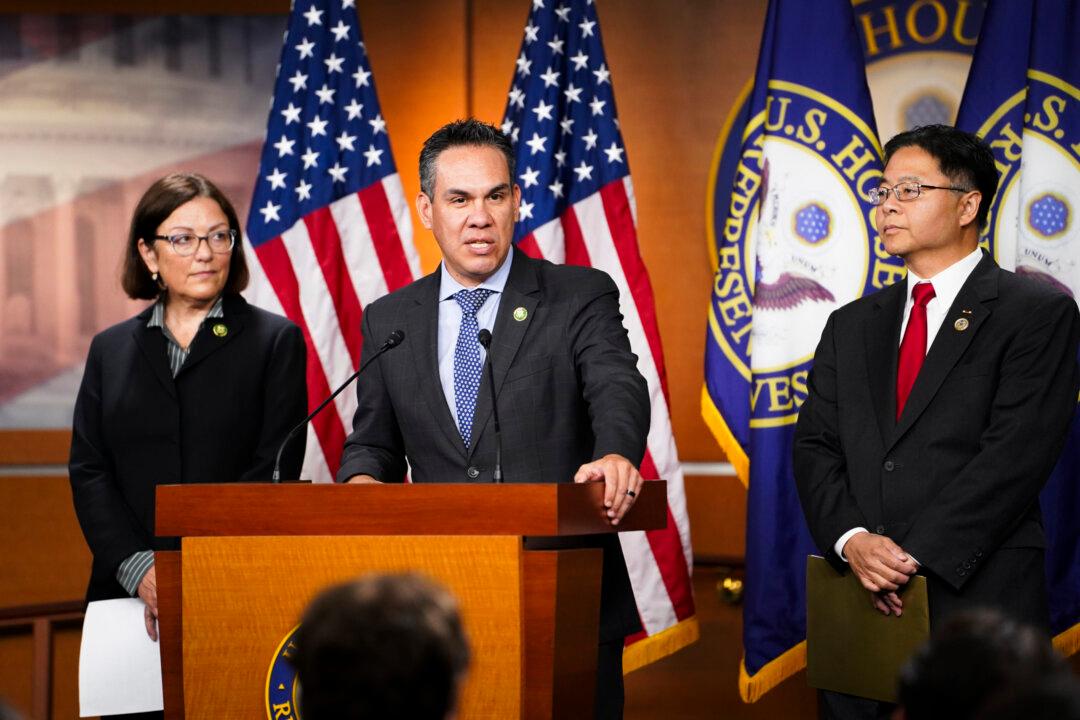House Democrat leadership responded to questions on their approach to addressing a potential government shutdown in 10 days and how they would work with Republicans if they move to vacate the House Speaker.
At a Sept. 19 press briefing, when The Epoch Times asked whether Democrats would work with Republicans on a compromise to find a plan both parties can agree on to fund the government before the Sept. 30 deadline, Democrat leaders were clear they wanted to “govern” but planned to keep to previous agreements made by lawmakers.





